This article was co-authored by wikiHow Staff. Our trained team of editors and researchers validate articles for accuracy and comprehensiveness. wikiHow's Content Management Team carefully monitors the work from our editorial staff to ensure that each article is backed by trusted research and meets our high quality standards.
This article has been viewed 459,326 times.
Learn more...
If you are a dissatisfied customer who would like a refund for faulty merchandise, incorrect content delivery or damaged goods, writing a letter of complaint could help resolve the situation. A straightforward letter that clearly outlines the problem and what the company can do to fix the situation is often more effective than simply complaining to customer service.
Steps
Example Letter Asking for a Refund
Gathering Necessary Information
-
1Figure out your objective. What can the company do to make the situation better for you? Are they obliged to remedy the situation by giving you a refund, replacing the product, or providing an alternative service? Ensure that your complaint is legitimate before proceeding to write the actual letter.
- Be sure to check out the warranties and guarantees that come with the particular product. For example, if you have a warranty on a product and you damaged the product, you may still be able to get a refund or a replacement. However, if you are responsible for damaging a product (such as dropping it on the floor) and it did not come with a warranty, you may just have to chalk it up as a loss and move on.
- If the purchase you are dissatisfied with required at-home assembly (such as furniture), check that you’ve followed all the instructions. In some cases, it may be that you missed a step and simply haven’t set it up correctly. You can also call customer service for assistance regarding this.
- If a product is sold “as-is” it will be difficult or impossible to get a refund as the consumer assumes all the risks that may come with purchases marked “as-is.”[1]
-
2Figure out who to address. Once you’ve ascertained that a letter of complaint is necessary, you must find out who to write your complaint to. If there is a specific department or person who handles complaints, you want to be sure your complaint goes directly to them to ensure prompt attention.
- If you are requesting a refund from a large company, you should call customer service first and tell them your concerns. If they are not able to satisfactorily handle your complaint, request the name of the appropriate person or department and mailing address for your letter.
- If you are dealing with a smaller company or store, look on the receipt or purchase order to find contact information. Send your letter to the person or address that is listed on the receipt. If there is no information on your receipt, call the store or check the website for information about refunds and returns.
- If you are looking for contact information online, you can typically find a customer service number at the bottom of the website page or by clicking a link that says “Contact Us” or “Contact Information.” Websites also typically have a search bar at the top of the page, so you can search for “customer service” or “contact information.”
Advertisement -
3Gather your materials. In order to maximize the chances of having your concerns adequately addressed, you should gather as much documentation as possible to include with your letter.
- Provide copies of all receipts, invoices, purchase orders or other supporting documents. The documents should list the date of purchase, cost of the merchandise or service, and payment information.
- If you already spoke with customer service and they were unable to solve your problem, write down their name as well as the date and time of the call. You can then include this information in your letter as proof that you already tried to resolve the situation but had to resort to writing a letter of complaint.
Writing the Letter
-
1Read other sample letters. Reading other sample letters of complaint will give you an idea of how to format your letter and they can also give you an idea of persuasive phrasing that you can use to your advantage.
- You can browse the Internet for sample letters. Below is one example, but remember this is only a template and you should write your own letter that details your specific situation.
- Return address and date
- To Whom It May Concern:
- I am writing regarding the lamp I purchased through your website. I have bought other household items through your website and have always been pleased with your prompt shipping and the quality of past items. However, upon receiving this particular order, I found that the stand of the lamp missing and therefore could not properly set up my lamp. I would like to request a full refund or an exchange for a functioning lamp. I have bought other products through your website in the past and have always been a satisfied customer up until now. Attached is my proof of purchase. I trust that you will respond to this matter promptly. Thank you for your time.
- Sincerely,
- John Doe
- You can browse the Internet for sample letters. Below is one example, but remember this is only a template and you should write your own letter that details your specific situation.
-
2Start with the positive. Even if you are upset, you should begin your letter on a positive note. You could note that you are a loyal customer or that you have appreciated their services in the past. Anger tends to be counterproductive and the veiled threat of losing an otherwise satisfied customer will often motivate the company to address your complaint.
- One approach could be “praising with faint damn” or praising first and then complaining second.[2] For example, you could start your letter by saying “As a long term customer of your business, I am usually impressed with your services. Unfortunately, I can no longer say this is the case as the last service I received was extremely unsatisfactory.”
- If you’re a first time customer, you could start by stating a positive aspect of the product or service or by emphasizing your excitement. An example opening line is: “I was excited to try out your services” or “Your product was recommended by several friends but I was ultimately disappointed.”
-
3Specify any important details. This step is especially important if you are writing to a larger business that may have trouble identifying your particular transaction. Important information may include order numbers, customer identifications or numbers, or names of the people you spoke with.
- Keep all receipts, emails, or any other evidence of past interactions as the company may ask for these materials to move forward in addressing your complaint. Whenever you speak to a customer service representative, be sure to ask for and write down their name so that you can reference them in your letter as further proof of the steps you took prior to writing the letter.
-
4Express your complaint clearly and concisely. Provide details about your dissatisfaction with the purchase or overall experience. Write about any unexpected difficulties or damage to the merchandise.
- For example, instead of just writing that you received a damaged item, explain exactly how the item was damaged and also clarify why the damage is not your fault. That way, you can preemptively ward off any attempts from the company to blame you for causing the damage.
- A sample description could be: “I opened the package containing my purchase and found that pieces of it had broken off as there was no styrofoam or other packing material to protect the item during shipment.”
- If you are complaining about never having received an item or an incomplete service, add any details you can think of that make it clear why the company is at fault. For example, you could write, “I was told to be home during the hours of 12 and 6 pm, yet the servicemen never arrived and I was still charged for the service. I should not be expected to pay for a service that I never received.”
- For example, instead of just writing that you received a damaged item, explain exactly how the item was damaged and also clarify why the damage is not your fault. That way, you can preemptively ward off any attempts from the company to blame you for causing the damage.
-
5Specify what you want. Clearly state if you want a refund, replacement, or whatever else you consider to be proper compensation. Making your expectations clear will help the company know what they can do to make you a satisfied customer.
- In writing about their dissatisfaction, many people tend to forget to ask for specific compensation in their letters. Remember that your ultimate goal is to receive compensation, not just to vent.
-
6Establish a time frame in which you expect a reasonable response. Keep in mind that some companies may take longer to respond, particularly if it’s a smaller company that doesn’t have a specific department that handles customer complaints.
- Some larger companies may have written policies on their website to let you know how long you should expect to wait for a response. However, if you can’t find any information about what a reasonable wait time is, try calling customer service or the business owners (if it’s a smaller business). If you cannot get in touch with anyone, expect to wait anywhere between two weeks to a month for a response.
-
7Conclude the letter with the most important points. You’ll want to close the letter with a brief statement re-emphasizing your interest in reaching a mutually satisfactory resolution. Keep the letter as direct and short as possible (one page is ideal) as companies may ignore overly long letters.[3]
- Use the law to your advantage. One way to close your letter is by reminding the company of your rights as a consumer. One increasingly recognized consumer right is the right to be heard, meaning that the concerns and interests of consumers must be heard and protected.[4] Reminding the company that you have the law on your side will encourage them to address your concern quickly and satisfactorily to avoid a potential legal battle.
- A possible conclusion to your letter could be: “Given that I received a brand new item in a broken/unsatisfactory state through no fault of my own, I expect a prompt and full refund. As a consumer, it is my legal right to receive what I purchased in working condition and, if that does not occur, for my payment to be fully refunded.”
-
8Be sure to include full contact information. Dating your letter and including a return address along with account numbers and any other useful information is crucial. If you fail to provide enough information, the company may have no way of responding to you.[5]
- When signing the letter, write your full phone number, email address and home address below. That way the company will have no excuse to not get in touch with you in the manner that is most convenient for them.
-
9Format your letter with formal letter guidelines. Formal letters include contact information, a formal salutation and a professional tone.
- When closing the letter, write “Sincerely,” “Best Regards,” or a similarly formal statement before writing your name.
- Don’t include any postscripts, which are generally only appropriate in informal letters. Also, any information you need to convey should already be in the body of the letter so a postscript should be unnecessary.
Getting the Results You Want
-
1Write the letter sooner rather than later. The longer you wait, the less likely the company is to address your complaint. Write and send your letter as soon as you decide you are dissatisfied with the transaction or delivery of products or services.
-
2Retain a copy of the letter and all information you sent to the company. You can refer back to this copy when speaking with the company to finalize any agreements.
- If you receive a form letter in response, don’t give up. Instead call customer service or whoever you spoke to prior to writing the letter to let them know you are not happy with their stock response and that you would like them to re-assess your complaint. Sometimes companies expect customers to just give up once they receive a form letter, but if you continue to raise a fuss, they will take your concern more seriously.
-
3Remain courteous and professional. If you don’t immediately get the result you want, don’t let your frustration get the better of you. Being sarcastic or angry will only make whoever you are communicating with less eager to help resolve the issue.[6]
Community Q&A
-
QuestionHow do I ask for a nonrefundable deposit back from a college?
 Community AnswerThink about why this deposit cannot be refunded and why. The answer may be it takes too much effort to refund the original deposit, but explaining the main consequence on why you would like a refund is a helpful source. Remember to introduce yourself politely, use clear words, make sense and most importantly, address a reasonable understanding on why you would like a refund.
Community AnswerThink about why this deposit cannot be refunded and why. The answer may be it takes too much effort to refund the original deposit, but explaining the main consequence on why you would like a refund is a helpful source. Remember to introduce yourself politely, use clear words, make sense and most importantly, address a reasonable understanding on why you would like a refund. -
QuestionHow can I write a letter to a company that does tax returns saying I want a refund?
 Community AnswerJust because you want a tax refund does not mean you are entitled to one. If the company did your taxes, you should have gotten a copy of the return that was filed for you, and if you were entitled to a return, the government should have sent it to you via check or direct deposit. The company who filed your taxes does not pay you.
Community AnswerJust because you want a tax refund does not mean you are entitled to one. If the company did your taxes, you should have gotten a copy of the return that was filed for you, and if you were entitled to a return, the government should have sent it to you via check or direct deposit. The company who filed your taxes does not pay you. -
QuestionHow can I write an email to my customer to replace a refund and return?
 Community AnswerDear (name here), I am unable to offer you a refund, but I am able to offer you a full exchange for the widget you bought. Please contact me if you have any questions. Yours truly, Jon Dere.
Community AnswerDear (name here), I am unable to offer you a refund, but I am able to offer you a full exchange for the widget you bought. Please contact me if you have any questions. Yours truly, Jon Dere.
References
- ↑ http://lehtoslaw.com/if-you-didnt-get-what-you-bargained-for-or-it-doesnt-work-return-it/
- ↑ http://www.womansday.com/life/tips/a4317/5-tips-for-writing-an-effective-complaint-letter-100047/
- ↑ https://www.ritenour.k12.mo.us/cms/lib/MO01910124/Centricity/Domain/494/Writing%20a%20Complaint%20Letter.pdf
- ↑ https://www.hg.org/article.asp?id=31356
- ↑ https://www.formpl.us/blog/complaint-letter
- ↑ https://www.formpl.us/blog/complaint-letter
About This Article
To write a letter asking for a refund, start on a positive note with a phrase such as “I was excited to try out your product based on recommendations from several friends.” Then, follow up with something like, “However, I was very disappointed by the quality of what I received.” Next, include specific details like unexpected difficulties, missing parts, or damage to the merchandise. Finally, specify whether you want a refund, replacement, or whatever else you think would be proper compensation. For more advice, including how to get results if the company doesn’t take your letter seriously, keep reading.


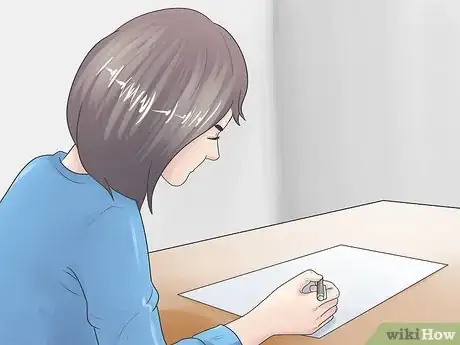
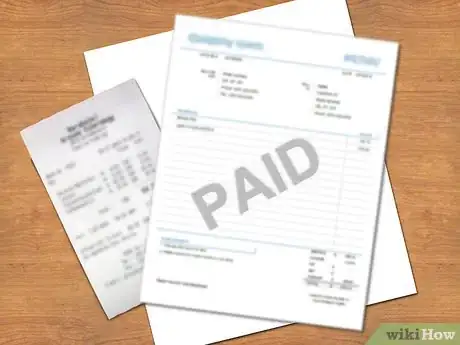

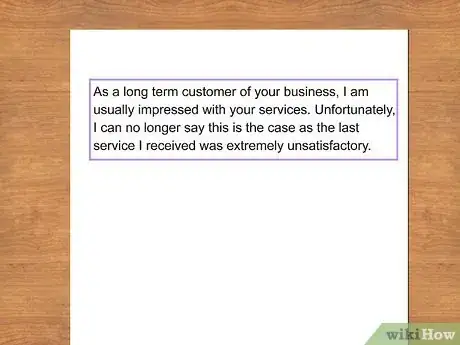
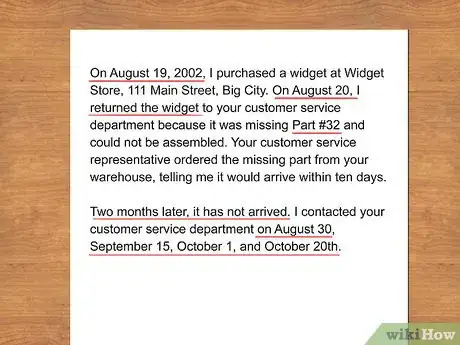

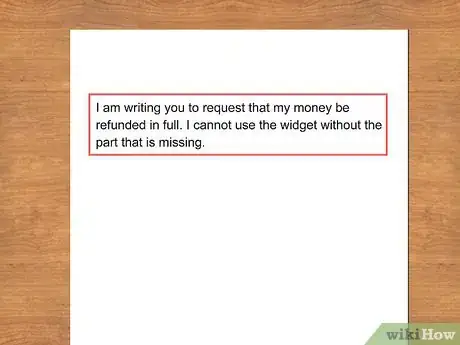
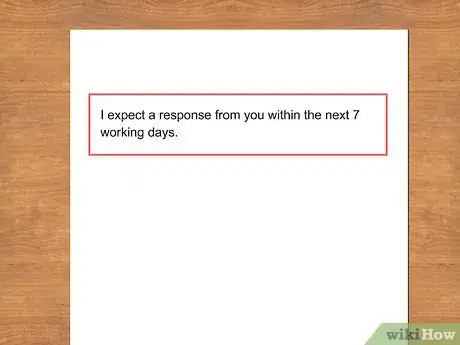
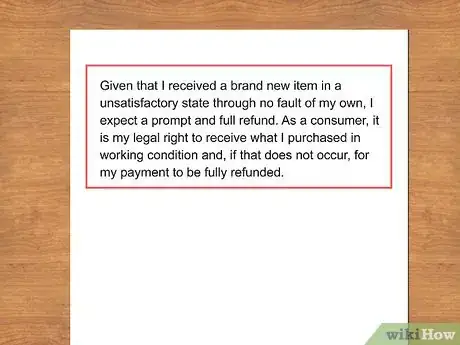
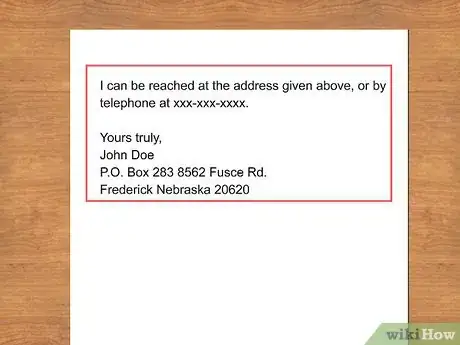

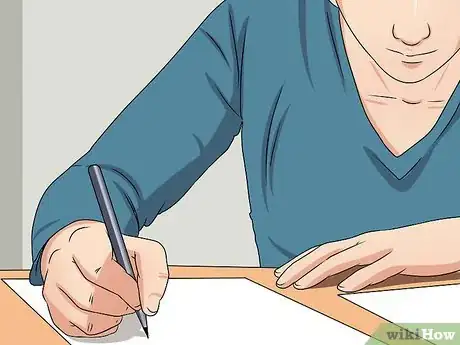
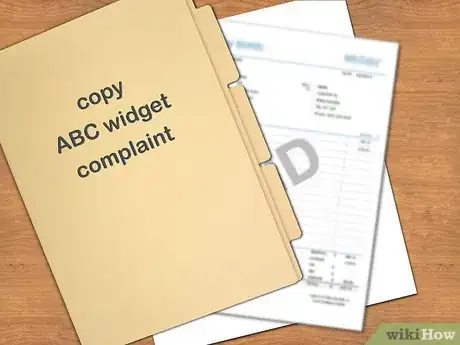
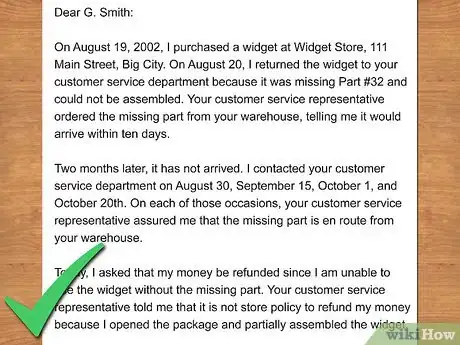

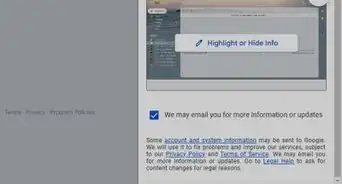
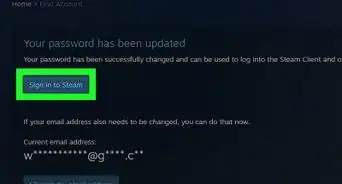

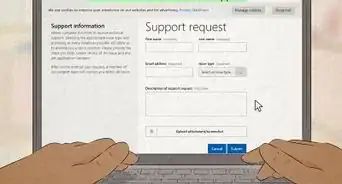




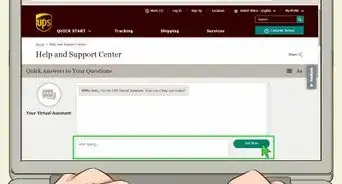
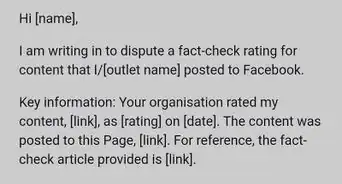

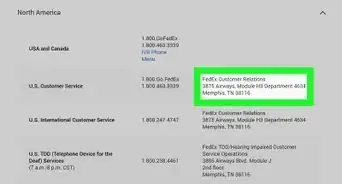
-Step-3-Version-2.webp)













































